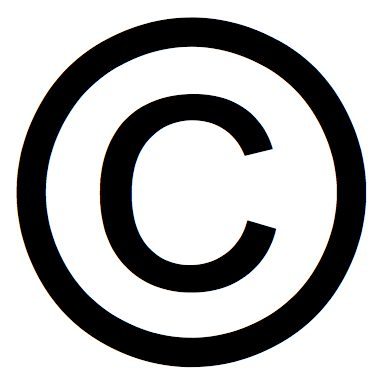There are three types of intellectual property. They include: (1) trademark; (2) patent; and (3) copyright law. As discussed in Trade Dress Protection, “[a] trademark is a mechanism for identifying the source of a good or service and a technique for providing marketing advantages for the owner of the trademark.” Moreover, while a patent protects an inventor’s inventions, a copyright protects an author’s original work.
The federal Copyright Act of 1976 governs the United States Copyright law. According to the law, Congress shall have the power “to promote the progress of science and useful arts, by securing for limited times to authors and inventors the exclusive right to their respective writings and discoveries.” Art. 1, Sec. 8, Cl. 8. The purpose of copyright is:
(1) To foster the creation and dissemination of intellectual works for the public welfare; and
(2) To give authors a reward due to them for their contribution to society.
How to Obtain a Copyright
A copyright exists for works that are “original works of authorship fixed in any tangible medium of expression . . . from which they can be perceived, reproduced, or otherwise communicated, either directly or with the aid of a machine or device.” 17 U.S.C. §102 (a). Works of authorship include the following eight categories:
- Literary works;
- Musical works, including any accompanying words;
- Dramatic works, including any accompanying music;
- Pantomimes and choreographic works;
- Pictorial, graphic, and sculptural works;
- Motion pictures and other audiovisual works;
- Sound recordings; and
- Architectural works. Id.
However, “[i]n no case does copyright protection for an original work of authorship extend to any idea, procedure, process, system, method of operation, concept, principle, or discovery, regardless of the form in which it is described, explained, illustrated, or embodied in such work.” 17 U.S.C. §102 (b).
Rights Under a Copyright
The copyright owner has the exclusive rights to do or to authorize any of the following:
- Reproduce the copyrighted work in copies or phono-records;
- Prepare derivative works based upon the copyrighted work;
- Distribute copies or phono-records of the copyrighted work to the public by sale or other transfer of ownership, or by rental, lease, or lending;
- In the case of literary, musical, dramatic, and choreographic works, pantomimes, and motion pictures and other audiovisual works, to perform the copyrighted work publicly;
- In the case of literary, musical, dramatic, and choreographic works, pantomimes, and pictorial, graphic, or sculptural works, including the individual images of a motion picture or other audiovisual work, to display the copyrighted work publicly; and
- In the case of sound recordings, to perform the copyrighted work publicly by means of a digital audio transmission. 17 U.S.C. §106.
Duration of a Copyright
According to the United States Copyright Office, “The law automatically protects any work that is created and fixed in a tangible medium of expression on or after January 1, 1978, from the moment of its creation and gives it a term lasting for the author’s life plus 70 years. For works made for hire and anonymous and pseudonymous works, the duration of copyright is 95 years from first publication or 120 years from creation, whichever is shorter.”
For more information about copyright, contact Revision Legal’s copyright attorneys through the form on this page or call (855) 473-8474.




